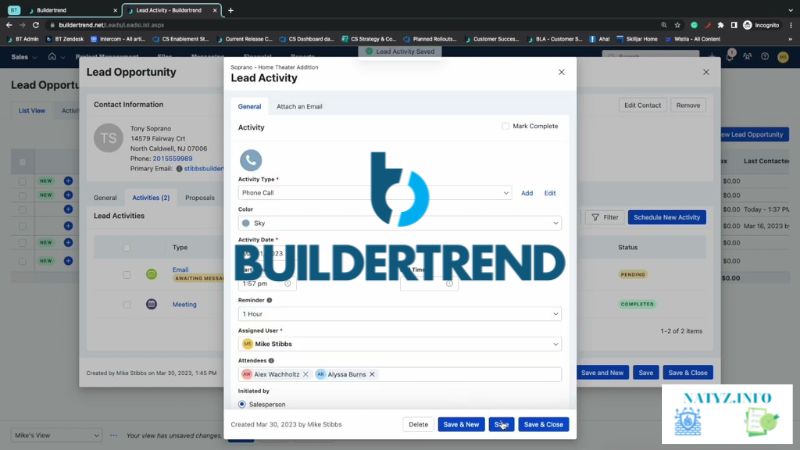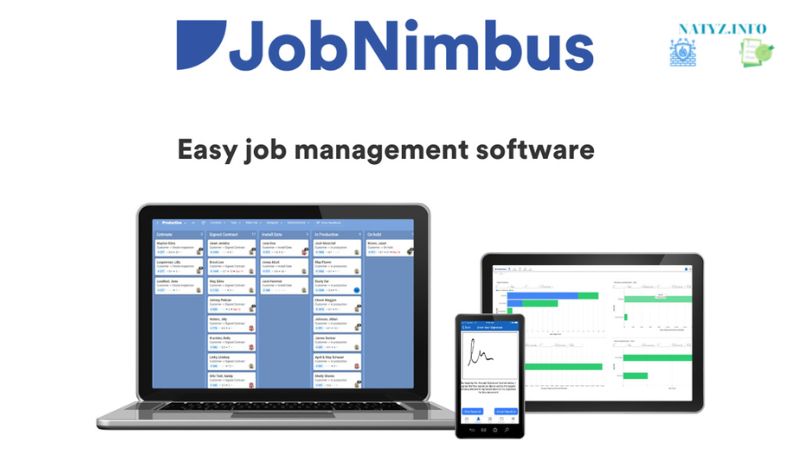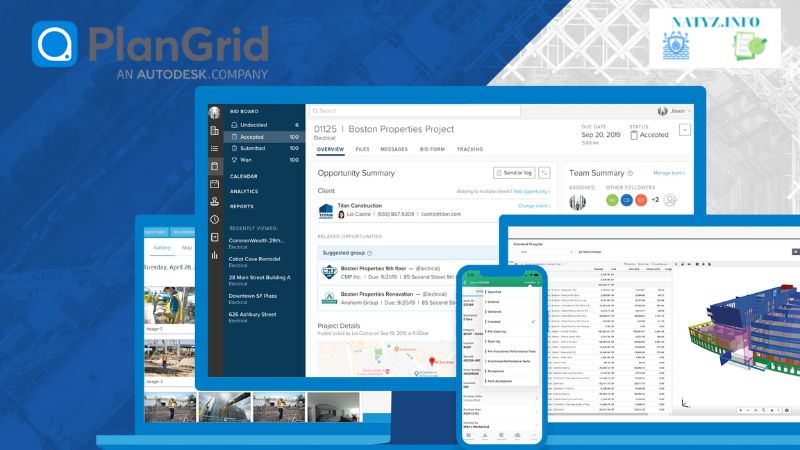Enhancing CRM Software for Construction for Business Efficiency
The construction industry, characterized by its dynamic and complex nature, requires robust tools to manage projects, maintain client relationships, and streamline workflows. One of the most effective solutions for these challenges is CRM software for construction. This technology has revolutionized how construction companies operate, providing a centralized platform to handle various aspects of the business. In this article, Natyz.info will explore some of the best CRM software for construction, highlighting their features, pros, and cons, to help you make an informed decision.
Understanding CRM Software for Construction
Customer Relationship Management (CRM) software is designed to manage a company’s interactions with current and potential clients. When tailored for construction, CRM software offers specialized tools that cater to the industry’s unique requirements. These tools can include project management, client communication, scheduling, document management, and budgeting. The right CRM software for construction not only helps in managing client relationships but also enhances overall project efficiency.
Top CRM Software for Construction
1. Buildertrend

- Features: Buildertrend is a comprehensive CRM software for construction that includes project management, client communication, scheduling, document management, and budgeting tools.
- Pros: It is mobile-friendly, easy to use, and offers a wide range of construction management features.
- Cons: It can be expensive for smaller firms, which might find the cost prohibitive.
Buildertrend is particularly beneficial for residential construction companies looking for an all-in-one solution to manage their projects and client relationships effectively.
2. Procore
- Features: Procore provides extensive project management capabilities, budget tracking, subcontractor management, document control, and quality and safety management.
- Pros: It offers robust integration options and is scalable, making it suitable for both small and large construction firms.
- Cons: The software has a steeper learning curve and comes at a higher cost compared to other options.
Procore stands out for its detailed industry-specific features, making it a top choice for companies that need comprehensive project oversight.
3. CoConstruct
- Features: CoConstruct is tailored for custom home builders and remodelers, offering project scheduling, client and subcontractor communication, financial management, and lead tracking.
- Pros: The interface is intuitive, and the customer support is highly rated.
- Cons: It has limited integration options, which might be a drawback for some businesses.
CoConstruct is ideal for smaller firms that focus on custom projects and need a straightforward, user-friendly tool.
4. JobNimbus

- Features: This CRM software for construction includes project and task management, contact management, workflow automation, and document storage.
- Pros: It is flexible, affordable, and well-suited for small to mid-sized businesses.
- Cons: Some features require third-party integrations to be fully functional.
JobNimbus offers a balance of functionality and affordability, making it accessible for growing construction companies.
5. Builder Prime
- Features: Builder Prime focuses on lead management, sales tracking, project management, and reporting.
- Pros: It excels in sales and lead management with customizable workflows and good customer support.
- Cons: It has fewer project management features compared to other software.
Builder Prime is perfect for construction businesses that prioritize lead tracking and sales management.
6. ConstructionOnline (UDA Technologies)
- Features: This software provides project management, contact management, scheduling, and file sharing.
- Pros: It offers a comprehensive feature set and is cost-effective, making it a popular choice for collaboration.
- Cons: The user interface can be overwhelming for new users.
ConstructionOnline is a versatile tool suitable for companies looking to enhance collaboration and project management.
7. Pipedrive
- Features: Pipedrive offers sales pipeline management, lead tracking, project management, and integration options.
- Pros: It is user-friendly, highly customizable, and effective for managing sales processes.
- Cons: It is not specifically designed for construction and may require customization.
Pipedrive is a great option for businesses that need a flexible CRM to handle sales and project management simultaneously.
8. PlanGrid (part of Autodesk Construction Cloud)

- Features: PlanGrid specializes in document management, field reporting, punch lists, and task management.
- Pros: It has strong document and field management features and is easy to use, especially with its mobile app.
- Cons: It lacks some CRM-specific features.
PlanGrid is excellent for construction firms that need robust document and field management capabilities.
9. Acculynx
- Features: Acculynx offers CRM, project management, scheduling, and estimating, specifically designed for roofing contractors.
- Pros: It integrates with QuickBooks and is tailored to the roofing industry.
- Cons: Its use is limited to roofing, which may not suit other types of construction businesses.
Acculynx is the best choice for roofing contractors looking for industry-specific CRM software.
10. ProDBX
- Features: ProDBX is an all-in-one solution that includes CRM, project management, scheduling, accounting, and inventory management.
- Pros: It is customizable and comes with good customer support.
- Cons: The software can be complex to set up.
ProDBX is suitable for construction companies that need a comprehensive, customizable tool to manage various aspects of their business.
Factors to Consider When Choosing CRM Software for Construction
When selecting CRM software for construction, it is essential to consider several factors to ensure it meets your business needs:
- Industry-Specific Features: Look for software that offers features tailored to construction, such as project management, scheduling, and document management.
- Ease of Use: The software should have a user-friendly interface with a manageable learning curve.
- Integration: Ensure the CRM integrates with other tools you use, like accounting software, email, and project management tools.
- Scalability: Choose software that can grow with your business, accommodating more projects and users as needed.
- Mobile Accessibility: A robust mobile app is crucial for field use, allowing project managers and workers to access and update information on the go.
- Customer Support: Reliable customer support is essential for troubleshooting issues and maximizing the software’s potential.
Conclusion
Investing in CRM software for construction can significantly enhance productivity, client satisfaction, and overall project management efficiency. With options like Buildertrend, Procore, CoConstruct, and others, construction businesses have access to tools that can streamline operations and improve communication. By carefully considering the features, pros, and cons of each option, companies can find the CRM software that best fits their unique needs. The right CRM software for construction can be a game-changer, helping businesses stay competitive in a demanding industry.
